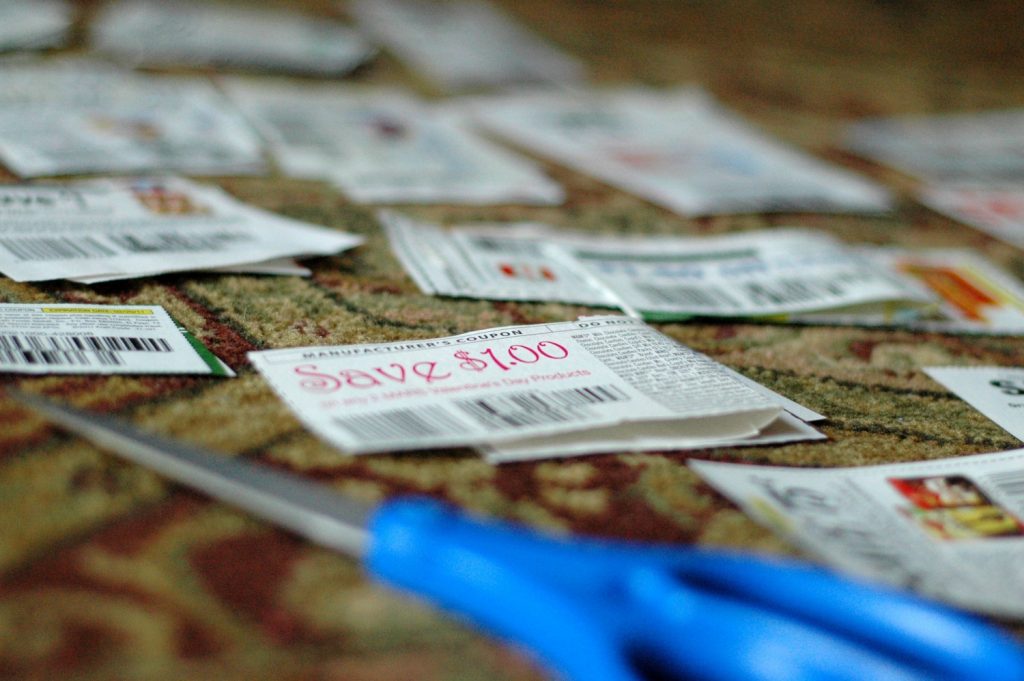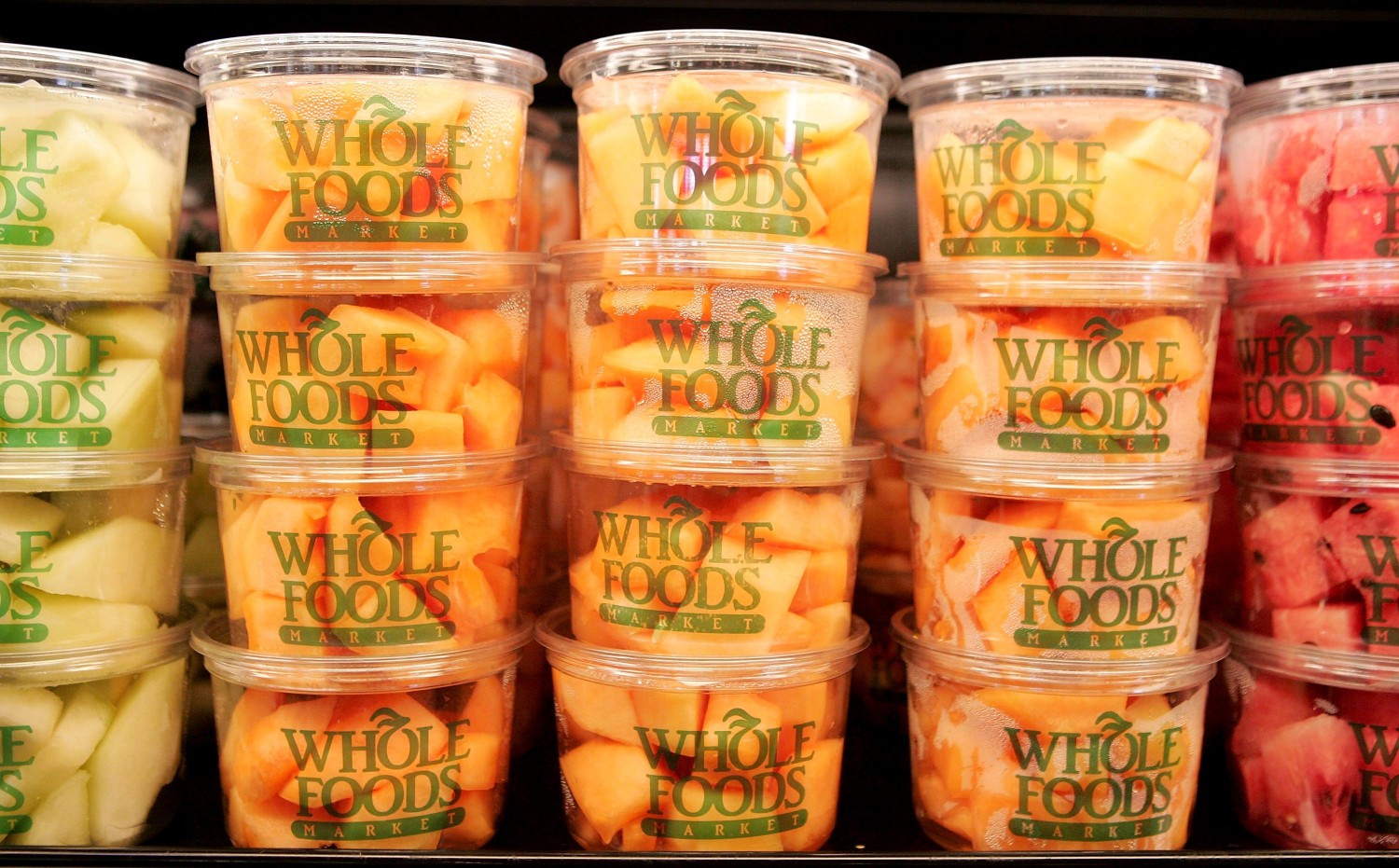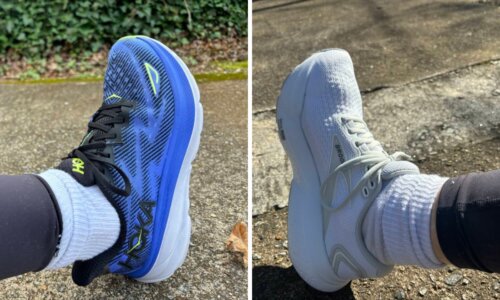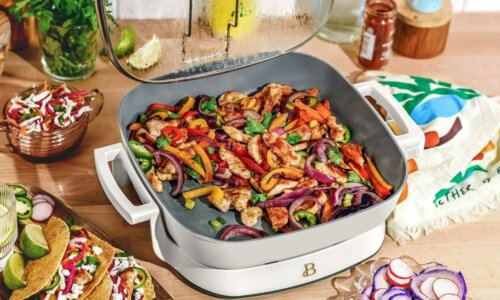Everyone is well aware that shopping at Whole Foods is not an inexpensive experience. Prices are sometimes double and triple what you’d find in your regular grocery store and even a quick trip can leave you unloading major cash by the time you hit the register. But Whole Foods is also a great place to shop. The variety is unbeatable, the staff is incredibly helpful, the meat and seafood options are some of the best around and the produce is of incredible quality. So how can you make shopping there less of a squeeze on your wallet? These 15 tips will help.
1. Meal plan for the entire week
Every Sunday, I look up recipes and write down what we’ve having for dinner, Monday through Saturday. Then, I write my grocery list based off of the ingredients missing from my pantry. Being prepared and having an organized grocery list will save you SO much money—that way, you won’t be tempted by bell peppers that are on sale (but totally unnecessary to buy).
2. Find ALL the coupons
You can get coupons for Whole Foods in a myriad of places: on their app, in the circular they keep at the front of the store, from their email newsletter and from manufacturers’ ads. That’s a lot of coupons, and you can usually stack them on top of each other to save the most money. Just make sure you’re only clipping coupons for stuff you actually need. Once again, a good deal on green juice you’ll never drink is not a good deal at all.

3. Buy in bulk
We’ve all bought a package of almond flour to make something, used half a cup and then let the rest spoil in the back of our cupboard. Using bulk bins, that problem can be avoided. Only buying as much as you need not only saves you money, it reduces food waste. You can buy everything from nut butters to spices in the bulk aisle, so make sure you take advantage.
4. Bring your own containers
You pay for the weight of the container in the bulk aisle—to be fair, it’s not a lot of weight, but it exists. Bring your own container and have an employee weigh it before you shop. You’ll shave a little off your bulk purchase—more if you buy a nut butter that comes in a plastic tupperware. And bonus: It’s good for the environment.
5. Stop putting eggs in your salad
Seriously, stop. The salad bar can be incredibly expensive if you’re not careful—that brown box gets heavy fast. So ditch the heavy stuff like hard-boiled eggs, beans and those little plastic cups of dressing. I love the lemon-dill tuna salad, but I make sure to only scoop as much as I’m going to eat in one sitting. Otherwise, it’s a $30 salad.
6. Ask the butcher about bulk deals
I am BFF with my Whole Foods butchers. They are great people and always willing to answer questions or give you a good deal. So ask if they can give you a discount if you buy a couple pounds of something, or see if they’re giving away bones for free or cheap (hello, homemade stock). Also, it’s much less expensive to buy responsibly raised protein at Whole Foods versus other places that don’t have such a wide selection. I paid $6 for over a pound of free-range chicken thighs at Whole Foods versus close to $10 for the same amount of chicken at my local supermarket.
7. Buy a case
If you really love the Maple Walnut RX Bars, buy an entire case of them! You can get 10 percent off and an entire box of your favorite bars to boot. This also goes for shelf-stable nut milks (the Whole Foods 365 Brand soy milk is A+ in my opinion) that stay good for a long time.
8. Buy lots of wine
This isn’t a joke. If you buy six bottles of wine at a time (and why not? We’re all adults here) you can also score 10 percent off. Plus, try the store label Three Wishes—it’s like the Trader Joe’s version of Three-Buck Chuck—which has some great wines for less than $5 a bottle.
9. Stick to seasonal produce
If you buy strawberries in the dead of winter, you’re going to pay a premium for them and they’ll probably taste like sawdust. Let’s be reasonable here—just buy them frozen. The 365 store brand has great frozen fruits and vegetables that will taste far better since they’re frozen at peak ripeness. Plus, in-season produce is much cheaper because it’s so widely available.
10. Don’t buy pre-cut anything unless you absolutely have to
Let’s not be ableist here—some people can’t cut up their own produce for whatever reason. But if you can, don’t buy the pre-cut stuff. You’ll pay a ridiculous markup for pineapple you could have sliced yourself with only a modicum of effort.
11. Make store employees cut it for you
Seriously, you can ask someone in the produce department to cut up fruits or vegetables for you. This is great if you only want half a watermelon or part of a truly enormous squash. While they’ll only do this within reason, (don’t get cute asking for half a pear) it’s still a great way to save on produce that can go bad quickly.
12. Buy frozen fish
Unless you’re shopping at a coastal fish market, almost everything you’re buying has been frozen already. So just buy it frozen in the store too. Don’t pay someone to defrost your fish for you. You’re not getting anything extra, flavor-wise, if you’re buying pre-frozen fish that’s just been thawed.
13. Skip the snacks
Prepackaged snacks get expensive quickly, and the organic ones are even worse. So skip the cookies and crackers in the middle aisles, or compare prices between name-brand and the Whole Foods 365 version. Unless you have a great coupon for something you just can’t get anywhere else (in which case, stock up), skip it.
14. Get a punch card
For everything from supplements to pre-made snacks, many locations offer a punch card. If you buy a lot of the 365 brand vitamins, ask someone at the store about it! The offer will vary from store to store, but in many places you can save $10 after spending $100. And some stores even have punch cards for sandwiches, burritos, salads, sushi and coffee.
15. Take advantage of the return policy
If you really, genuinely hate something or it spoiled much faster than it should have, take it back! The customer service department at Whole Foods is amazingly helpful and they will almost always give you a refund if you keep the receipt. Don’t waste money on berries that grew mold overnight.














